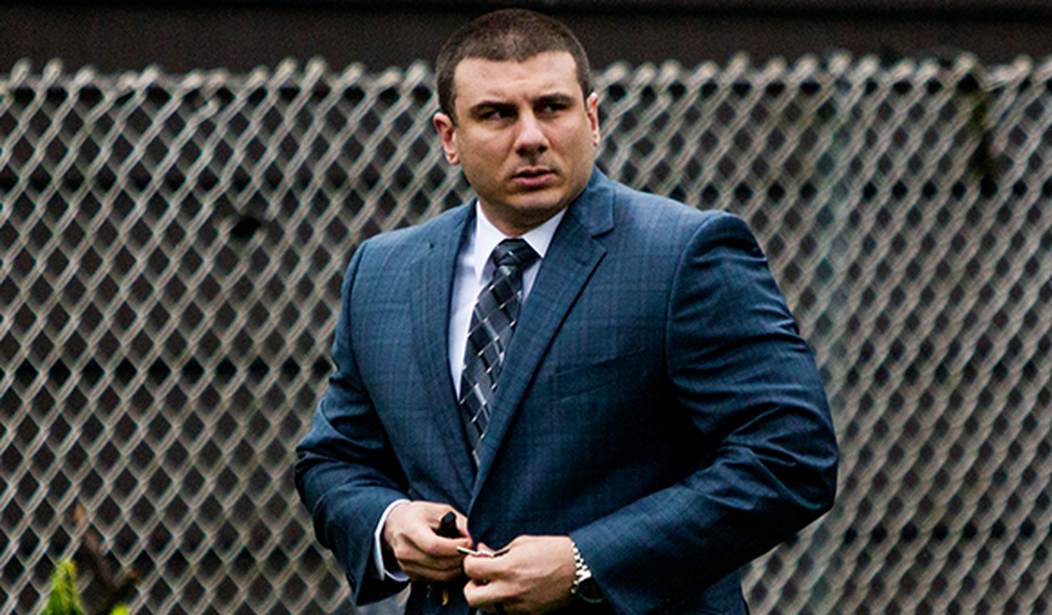The dismissal of NYPD Officer Daniel Pantaleo, five years after he participated in the fatal arrest of Eric Garner, hinged on a second-by-second analysis of cellphone video showing Pantaleo subduing the suspected cigarette seller, who was about his height but weighed almost twice as much. An administrative judge concluded, and Police Commissioner James O'Neill agreed, that Pantaleo recklessly used a prohibited chokehold, applying pressure to Garner's neck in a way that inflicted injury and helped trigger an asthma attack.
But the factors that led to Garner's death go beyond the misconduct of one officer. They include policies and practices that resulted in a violent confrontation that never should have happened.
Garner was arrested for selling cigarettes without paying the legally required excise taxes, which in New York City total nearly $6 a pack (not counting the standard sales tax of almost 9%). The cigarette tax in Virginia, by contrast, is 30 cents a pack.
By imposing excise taxes almost 20 times as high as those collected in a state that's a four-hour drive away, legislators invited the sort of entrepreneurial activity that got Garner into legal trouble. Around half of the cigarettes sold in New York City are smuggled from lower-tax jurisdictions.
From Garner's perspective, he was performing a valued service for his neighbors by helping them avoid the country's heaviest cigarette taxes. From the city's perspective, he was depriving politicians of their cut, a Class A misdemeanor punishable by a maximum fine of $1,000 or up to a year in jail.
Given that sales of untaxed cigarettes are rampant in New York City, you might wonder why a small-time operator like Garner, who was arrested in March and May of 2014 before his final, fatal encounter with police that July, merited so much attention. As Rosemarie Maldonado, the deputy commissioner who oversaw Pantaleo's administrative trial, explained in her ruling, the obsession with Staten Island "loosie" dealers grew out of a March 2014 meeting at One Police Plaza "focusing on quality-of-life conditions."
Recommended
At that meeting, Lt. Christopher Bannon of the 120th Precinct "was specifically tasked with addressing the illegal sale of untaxed cigarettes in the vicinity of 200 Bay Street, Staten Island, near Tompkinsville Park." It was Bannon who, after observing people "huddled" near the park on the afternoon of July 17, summoned the precinct's "quality-of-life coordinator," Officer Justin D'Amico, who arrived at the scene with Pantaleo.
The officers saw Garner, who was familiar to both of them, standing outside a beauty supply store on Bay Street. D'Amico claimed he witnessed a cigarette sale. When confronted, Garner adamantly and repeatedly denied that he had been selling cigarettes that afternoon, saying he had just broken up a fight while hanging out with a friend -- an account confirmed by two witnesses.
While Maldonado and O'Neill both faulted Garner for failing to "comply" with police orders, his resistance is understandable in light of his manifestly sincere anger at being busted for a crime he had not committed. "Who'd l sell a cigarette to?" he asked. "I didn't sell anything. ... Every time you see me, you wanna harass me, you wanna stop me. ... I'm minding my business, officer."
As Garner saw it, the police were the aggressors in this situation, and all he did was resist their unprovoked assault on him. Even if you accept the premise that loosie sellers create a public nuisance, such violence clearly has a more severe impact on "quality of life."
D'Amico and Pantaleo could have let Garner off with a warning, as D'Amico had done two weeks earlier after observing a cigarette sale, or they could have issued an appearance ticket instead of insisting on taking him into custody. A New York law enacted this year generally requires appearance tickets, rather than arrests, for misdemeanors.
If properly constrained, police would not only eschew especially dangerous restraint techniques. They would strive, first and foremost, to avoid violence unless necessary and proportionate.
Jacob Sullum is a senior editor at Reason magazine. Follow him on Twitter: @JacobSullum. To find out more about Jacob Sullum and read features by other Creators Syndicate writers and cartoonists, visit the Creators Syndicate webpage at www.creators.com.

























Join the conversation as a VIP Member